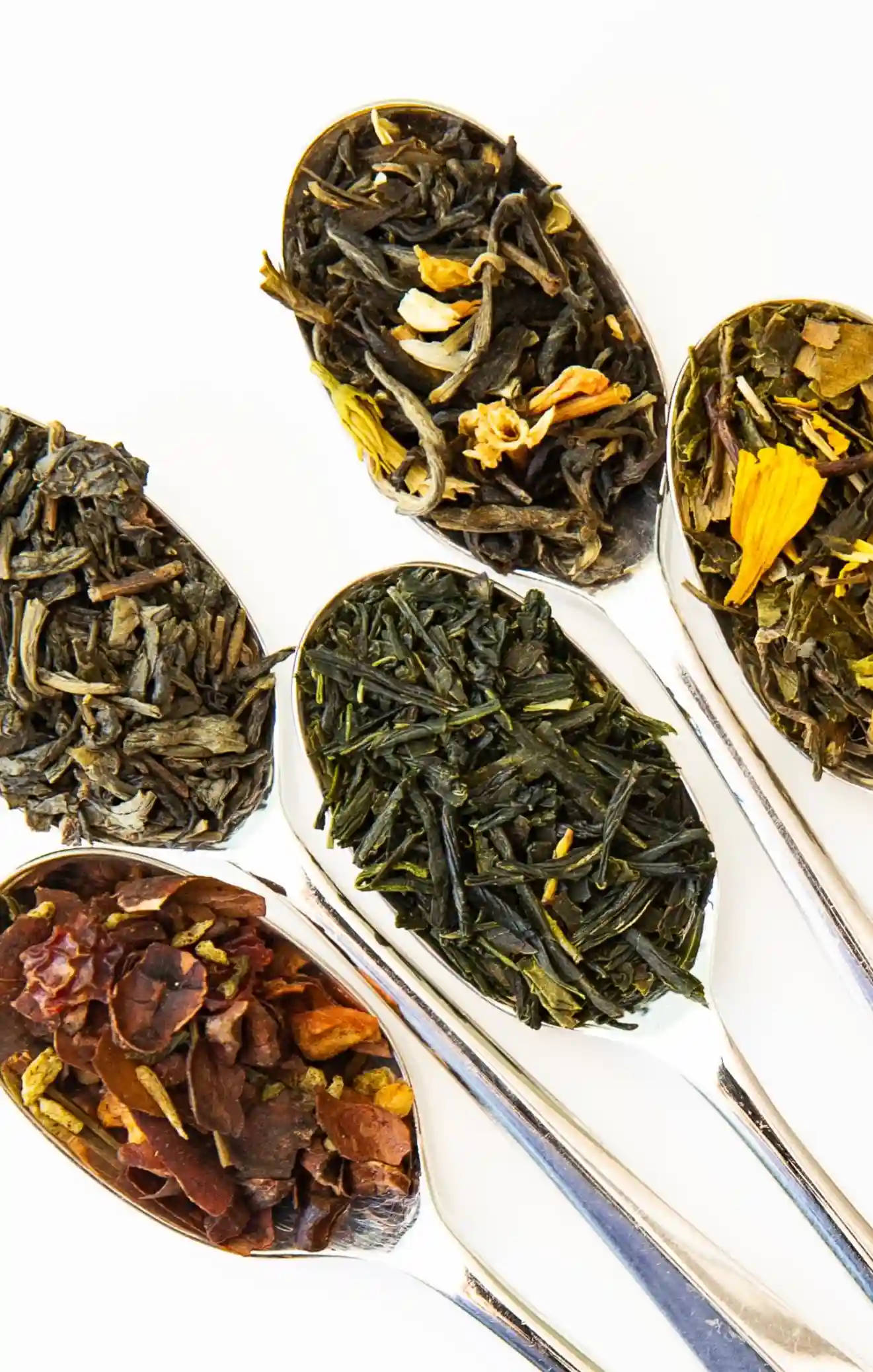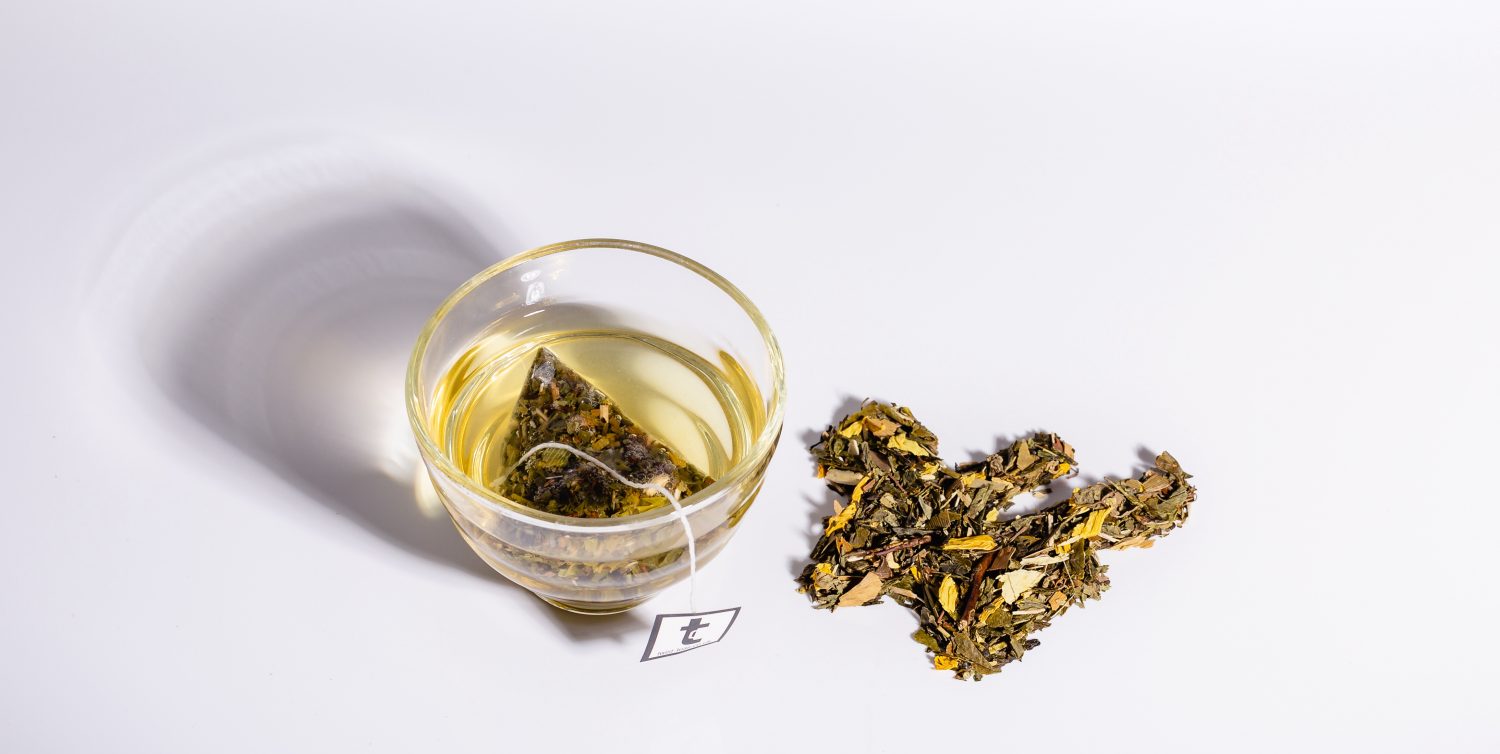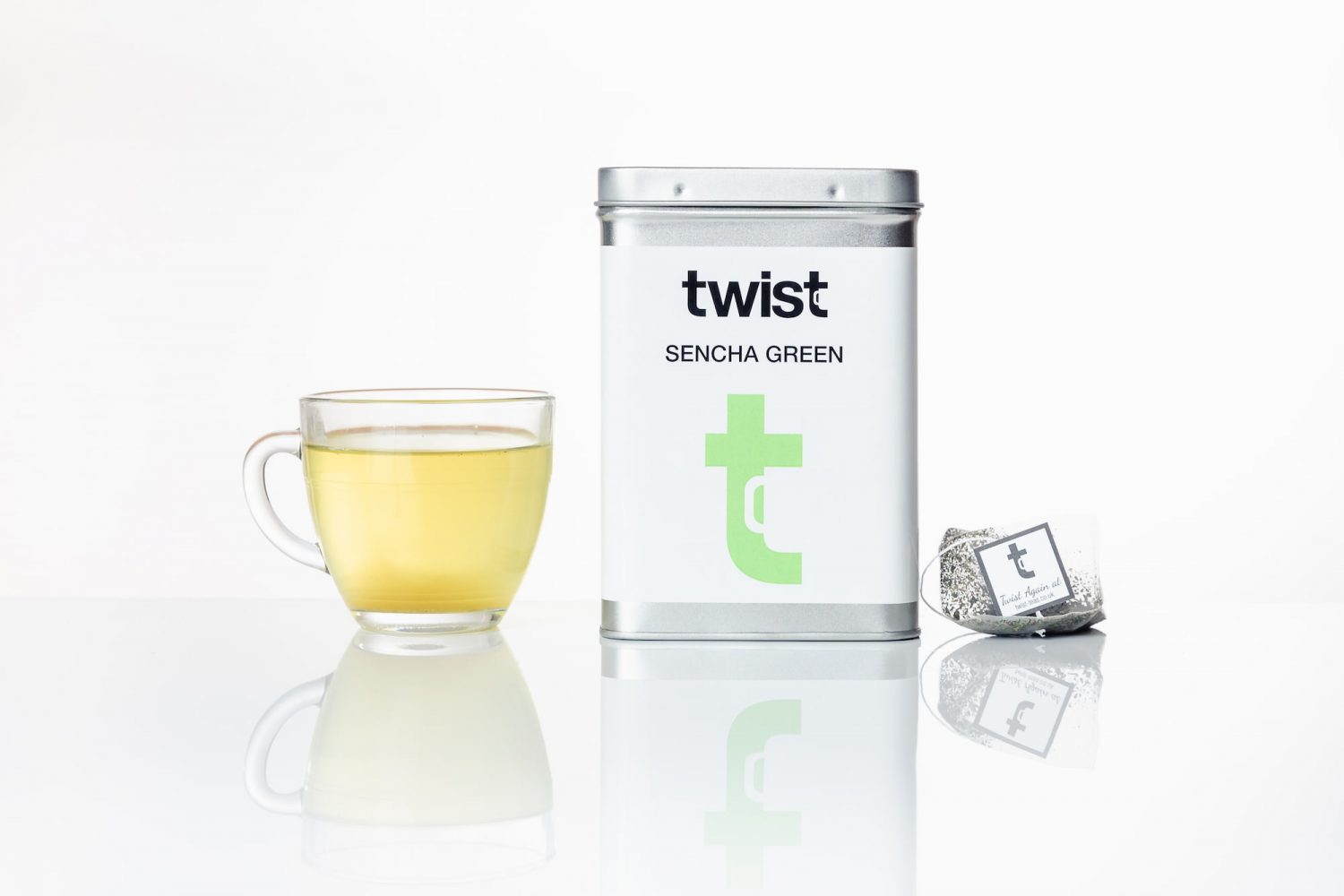News
Are you looking for a refreshing Mint tea that not only tastes great but also offers potential health benefits? Look no further than Twist Teas ‘Propermint Tea’. Before you rush off, let’s explore the benefits of mint tea together. Derived from the leaves of the mint plant, mint tea has been enjoyed for centuries and is known for its soothing properties and pleasant flavour.
But did you know that mint tea may also have a range of health benefits? From aiding digestion to relieving stress, mint tea is more than just a tasty drink. Discover the benefits of mint tea, learn how to make it at home, and explore its cultural significance in different parts of the world.
Key Takeaways:
- Mint tea offers potential digestive benefits, helping to alleviate stomach discomfort and indigestion.
- It has a natural calming effect, making it a great choice for stress relief and relaxation.
- You can easily make mint tea at home using just a few ingredients and simple steps.
- While mint tea is generally safe to consume, it’s important to consider any precautions and consult with your healthcare provider if you have any underlying health conditions or are taking medications.
- Mint tea has cultural significance in various parts of the world, with different traditions and variations.
Potential Digestive Benefits
Mint tea is often celebrated for its potential digestive benefits. It is believed to help alleviate stomach discomfort, bloating, and indigestion. The natural compounds in mint may have a soothing effect on the digestive system, making it a go-to choice for those experiencing digestive issues. Peppermint tea, in particular, is cherished for its potential benefits in relieving symptoms of irritable bowel syndrome (IBS).
Mint tea has been used for centuries to ease various stomach issues. The menthol in mint leaves is thought to relax muscles in the gastrointestinal tract, improving the flow of bile and aiding digestion. It also possesses anti-inflammatory properties that can help reduce inflammation in the gut, potentially relieving symptoms of digestive disorders.
Peppermint tea, a popular variant of mint tea, has gained recognition for its ability to alleviate symptoms of irritable bowel syndrome (IBS). IBS is a chronic disorder that affects the large intestine and can cause abdominal pain, bloating, and changes in bowel movements. Studies suggest that peppermint tea may help relax the muscles in the intestines, reducing spasms and alleviating IBS symptoms.
Clinical Research on Mint Tea’s Digestive Benefits
While many people swear by the digestive benefits of mint tea, it’s worth noting that scientific research on its effectiveness is limited. Most of the evidence supporting its use comes from traditional use and anecdotal reports. However, a few studies have shown promising results.
One study published in the Journal of Gastroenterology examined the effects of peppermint oil capsules, a concentrated form of peppermint, on symptoms of irritable bowel syndrome. The study found that peppermint oil capsules significantly reduced abdominal pain, bloating, and flatulence in participants, suggesting the potential of peppermint for managing IBS symptoms.
Another study published in Phytotherapy Research investigated the effects of peppermint oil on postoperative nausea and vomiting. The researchers found that peppermint oil significantly reduced the incidence and severity of nausea and vomiting in patients after surgery compared to a placebo.
While more research is needed to establish conclusive evidence, these studies provide promising insights into the potential digestive benefits of mint tea.
| Benefits | Summary |
|---|---|
| Alleviates stomach discomfort | The natural compounds in mint may help soothe the stomach, reducing discomfort and bloating. |
| Helps with indigestion | Mint tea’s ability to improve bile flow and relax digestive muscles may aid in digestion and relieve indigestion. |
| Relieves symptoms of IBS | Peppermint tea may ease abdominal pain, bloating, and irregular bowel movements associated with irritable bowel syndrome (IBS). |
| Reduces inflammation in the gut | Mint tea’s anti-inflammatory properties may help reduce gut inflammation, providing relief from digestive disorders. |
Calming Effects and Stress Relief
Mint tea is not only refreshing but also has natural calming effects, making it an excellent stress-reliever. After a long and hectic day, taking a moment to enjoy a warm cup of mint tea can provide a sense of tranquility and relaxation. The soothing aroma and gentle taste can help unwind, promoting overall well-being.
Mint tea’s calming effects can be attributed to its relaxing properties. The natural compounds found in mint leaves, such as menthol, have been known to have a soothing effect on the body, helping to alleviate stress and anxiety.
The act of sipping on a cup of mint tea can create a mindful and peaceful experience, allowing individuals to take a break from their busy lives.
Moreover, mint tea is often consumed as part of a bedtime routine, as it helps to create a serene atmosphere that promotes restful sleep. The ritual of preparing and enjoying a cup of mint tea can signal to the body that it’s time to relax and unwind, making it an ideal companion for those seeking a peaceful night’s sleep.
To fully experience the calming effects and stress relief that mint tea offers, it’s best to find a quiet and comfortable space where you can enjoy your tea without distractions. Take a moment to breathe in the soothing aroma as you slowly sip on the warm liquid. Allow the calming sensations to wash over you, melting away the stress and tension of the day.
“There is nothing more calming than a cup of mint tea. Its refreshing taste and soothing aroma provide instant relaxation and help melt away the stress of the day.”
Mint Tea Benefits for Stress Relief – mint tea is reputed to:
- Promote relaxation and tranquility
- Alleviate stress and anxiety
- Aid in creating a bedtime routine for better sleep
- Provide a moment of mindfulness
Embrace the calming effects of mint tea and discover the stress-relieving benefits it has to offer.
How to Make Mint Tea:
Making mint tea at home is a straightforward process. Here’s a simple guide to brewing your own refreshing cup of mint tea:
- Start by rinsing a handful of fresh mint leaves under cold water to remove any dirt or debris.
- Next, gently bruise the leaves with a mortar and pestle to release their natural oils and flavour.
- Place the bruised mint leaves in a teapot or heatproof container.
- Bring water to a boil and then allow it to cool slightly before pouring it over the mint leaves.
- Let the mint leaves steep in the hot water for about 5-10 minutes to infuse the flavours.
- While the tea is steeping, prepare your teacups by adding a small amount of honey or a squeeze of lemon, if desired.
- After steeping, strain the mint leaves from the tea using a fine-mesh sieve or tea strainer.
- Pour the freshly brewed mint tea into your prepared teacups and serve hot.
For a cold mint tea, simply follow the same steps but allow the tea to cool completely before refrigerating or serving over ice. You can also add additional ingredients like fresh lemon slices or a sprig of lavender for added flavour and aroma.
Making your own mint tea allows you to control the quality of the ingredients and tailor the flavours to your liking. Experiment with different varieties of mint, such as spearmint or peppermint, to discover your favourite combination. Enjoy the refreshing and soothing qualities of homemade mint tea anytime! Or spoil yourself with a cup of premium mint tea from Twist Teas.
Precautions and Considerations
While mint tea is generally safe for most people to drink, there are some precautions and considerations to keep in mind. Mint tea can interact with certain medications, so it’s important to talk to your doctor before consuming it if you are taking any medications. It’s also worth noting that mint tea may not be suitable for individuals with gastroesophageal reflux disease (GERD) or certain health conditions. Pregnant women should consult with their doctor before consuming mint tea as well.
Traditional Uses and Cultural Significance
Mint tea has a rich history and cultural significance in different parts of the world. Exploring the traditional uses of mint tea offers a glimpse into the diverse cultural practices and beliefs surrounding this aromatic beverage.
In Moroccan culture, mint tea is a staple drink that is deeply ingrained in daily life. Known as “Moroccan mint tea” or “Maghrebi tea,” it is steeped with fresh mint leaves, green tea, and sugar. This refreshing blend is typically served in small glasses and shared among family and friends. In Morocco, mint tea is not just a beverage but a symbol of hospitality and sociability, often enjoyed throughout the day.
The Native Americans of North America also have a long history of using mint leaves for tea. Various tribes, such as the Cherokee, Iroquois, and Lakota, utilised wild mint leaves to make tea for their medicinal properties. Mint tea was often used to soothe an upset stomach, relieve indigestion, and promote overall well-being.
Ancient civilisations like the Greeks and Egyptians valued mint for its medicinal benefits. The Greeks commonly used peppermint as a digestive aid and as a remedy for ailments such as stomachaches. Peppermint tea was also highly regarded in Egyptian culture, known for its refreshing taste and potential health benefits.
Mint tea can be made using different types of mint leaves, each adding its own unique flavour and aroma. Whether it’s spearmint, peppermint, or orange mint, the choice of mint can vary according to regional preferences and cultural customs.
Cultural Significance and Symbolism
Mint tea is not only a cherished beverage but also holds cultural symbolism in many societies. It represents hospitality, friendship, and unity. In Moroccan culture, the intricate process of pouring mint tea from a teapot held high above the cups is seen as a sign of respect and generosity.
- Mint tea is a traditional drink in Morocco, where it is steeped with mint leaves, green tea, and sugar.
- Native Americans used wild mint leaves to make tea for medicinal purposes, particularly for relieving an upset stomach.
- Ancient civilisations like the Greeks and Egyptians valued peppermint for its potential health benefits.
- Different types of mint leaves, such as spearmint, peppermint, or orange mint, can be used to make mint tea.
“Mint tea is not just a beverage but a symbol of hospitality and sociability, often enjoyed throughout the day.”
Traditional Mint Tea Preparations
Depending on the cultural context, mint tea can be served hot or cold and may be prepared using various different methods. In Moroccan and Middle Eastern cultures, the tea leaves, mint, and sugar are typically brewed together in a teapot and poured into small glasses in a careful and impressive manner. The tea is often shared among guests, fostering a sense of community and connection.
Here is an example of a traditional Moroccan mint tea recipe:
| Ingredients | Instructions |
|---|---|
| Green tea leaves | 1. In a teapot, add green tea leaves and boiling water. |
| Mint leaves | 2. Gently crush a handful of fresh mint leaves and add them to the teapot. |
| Sugar | 3. Add sugar according to taste preference (typically a generous amount). |
| Hot water | 4. Pour in hot water and let the tea steep for a few minutes. |
| 5. Stir the tea to dissolve the sugar and release the mint flavour. | |
| 6. Pour the tea into small glasses, holding the teapot high to create a dramatic pour. |
Mint tea is a testament to the cultural diversity and traditions that have been passed down through generations. By exploring these traditional preparations and practices, we gain a deeper understanding of the cultural significance attached to this beloved beverage.
Scientific evidence supporting Mint Tea:
While mint tea is believed to have potential health benefits, there is limited scientific evidence supporting these claims. The benefits of mint tea are predominantly based on traditional use and anecdotal evidence. Although some studies suggest that peppermint tea may assist with symptoms of stomach and digestion issues, as well as cold and flu symptoms, further research is required to establish conclusive evidence.
Mint tea has been consumed for centuries and is renowned for its refreshing taste and soothing properties. However, it is essential to approach its health benefits with caution, as the scientific evidence is currently limited. The sequel follows a brief overview of the existing evidence surrounding the health benefits of mint tea.
“While traditional use and anecdotal evidence suggest various health benefits of mint tea, the scientific research is still evolving and requires further investigation.”
Health Benefits Based on Limited Evidence
Evidence suggests some potential health benefits of Mint tea.
Anecdotal experiences and traditional use have led to claims regarding its positive effects on digestion, cold and flu symptoms, and stress relief. However, it is important to note that these benefits are not universally applicable and individual experiences may vary.
Some of the potential areas where Mint tea may offer benefits based on anecdotal evidence include:
- Comforting the digestive system and aiding in alleviating stomach discomfort
- Assisting with symptoms of irritable bowel syndrome (IBS) and indigestion
- Relieving symptoms of cold and flu, such as congestion and sore throat
- Promoting relaxation and stress reduction
While these claims are enticing, it’s crucial to approach them with caution until further scientific evidence emerges. The table below summarises the limited evidence for the health benefits of mint tea:
| Health Benefit | Evidence Level |
|---|---|
| Assists with digestive discomfort | Limited evidence based on anecdotal reports |
| Relieves symptoms of irritable bowel syndrome (IBS) | Inconclusive evidence, further research needed |
| Supports relief from cold and flu symptoms | Preliminary evidence from limited studies, more research required |
| Aids in relaxation and stress reduction | Early-stage research, limited evidence |
The limited evidence available showcases the potential health benefits of mint tea, although further research is necessary to establish definitive conclusions. It is important to remember that individual experiences may vary, and consulting with a healthcare professional is advisable before incorporating mint tea into your health routine.
Conclusion
Mint tea offers a multitude of benefits that make it a refreshing and enjoyable beverage choice. With its potential to promote  digestive health and alleviate stress, it can be a soothing addition to your daily routine. The best part is that we have an amazing tasting 100% peppermint tea right here, our blend ‘Propermint Tisane.’
digestive health and alleviate stress, it can be a soothing addition to your daily routine. The best part is that we have an amazing tasting 100% peppermint tea right here, our blend ‘Propermint Tisane.’
However, it is important to exercise with caution and consider certain factors before incorporating mint tea into your lifestyle. If you have any pre-existing health conditions or are taking medications, it is advisable to consult with your healthcare provider to ensure that mint tea is safe for you. Additionally, while mint tea has a long history of traditional use and anecdotal evidence supporting its benefits, scientific research is limited in this area.
Despite this, many individuals find the experience of drinking mint tea to be both soothing and beneficial to their overall well-being. So, whether you choose to enjoy a cup of homemade mint tea or opt for a commercial brand, taking into account the considerations and potential benefits, mint tea can be a delightful addition to your day.
FAQ
What are the potential health benefits of mint tea?
Mint tea is believed to aid digestion, relieve symptoms of irritable bowel syndrome (IBS), and have a calming effect on the body.
Does mint tea help with digestive issues?
Yes, mint tea is often celebrated for its potential digestive benefits. It can help alleviate stomach discomfort, bloating, and indigestion.
Can mint tea provide stress relief?
Yes, mint tea has a natural calming effect and is considered a great stress-reliever. It can help individuals unwind and promote relaxation.
How can I make mint tea at home?
Making mint tea at home is a straightforward process. You can brew your own refreshing cup of mint tea by following a simple guide and using a few ingredients.
Are there any precautions or considerations when drinking mint tea?
Yes, mint tea can interact with certain medications, and it may not be suitable for individuals with certain health conditions. It’s important to consult with your doctor if you have any concerns before consuming mint tea.
How is mint tea used in different cultures?
Mint tea holds cultural significance in various cultures, such as Moroccan culture and Native American traditions. It is prepared and served in different ways, depending on the culture.
Is there scientific evidence supporting the health benefits of mint tea?
While mint tea is believed to have potential health benefits, it’s important to note that the evidence is limited and mostly based on traditional use and anecdotal evidence. Further research is needed to establish conclusive evidence.
What can I expect from drinking mint tea?
Drinking mint tea can provide a refreshing and enjoyable experience. While the benefits may vary for each individual, it has the potential to promote digestive health, relieve stress, and contribute to overall well-being.




















